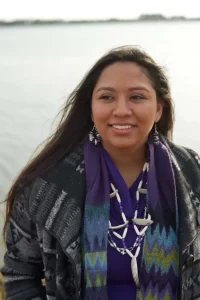The scientific consensus is that climate change is an immediate and existential threat to life on earth, and it is driven by humans’ energy consumption, especially the burning of fossil fuels. Those facts should be sufficiently sobering, but AI, crypto currencies, and other digital tools/entertainments magnify already voracious demands for energy even as global temperatures soar.
The burdens of climate change do not fall evenly across populations; industrialized nations in the global north historically burn the most fossil fuels—and reap financial benefits—while nations in the global south suffer desertification and famine, and coastal and island nations suffer salination of arable land and inundation of entire islands due to rising ocean levels.
In July 2025, The International Court of Justice—the United Nations’ highest court— ruled that wealthy nations must either comply with their international obligations to reduce the “urgent and existential threat” of climate change, or compensate the (poorer) nations bearing the brunt of its impact.
Dr. Kelsey Leonard, a member of the Shinnecock Nation, brings an indigenous perspective to environmental justice. She is a legal scholar and Canada Research Chair in Indigenous Waters, Climate, and Sustainability at University of Waterloo. She draws on indigenous science—knowledge indigenous people have accumulated for millennia and transmitted through ritual and storytelling—to protect water, ocean kinship, and community resilience. On the podcast Bring Birds Back, Leonard explained indigenous environmental justice as based in kinship with other creatures, including birds and bodies of water: when humans build wind turbines in the migration paths of our shorebird kin, much to their peril, that is not a just solution to humans’ problem of energy production.
In our own PNW neighborhood, hydroelectric dams have provided utility companies with cheaper energy but at the expense of salmon and the tribes and orca who depend on them. Rivers are the circulatory systems of their local aquatic ecologies, holding together ecosystems—kinship networks—including land, water, animals, and humans. Leonard applies the novel legal theories of Earth Law, holding that rivers have inherent rights independent of any human claim to ownership.
Leonard’s descriptions of kinship with other living things brings to mind St. Francis’s Canticle of the Creatures, in which he addresses not only animals, but also the elements and heavenly bodies as kin, “brothers” and “sisters.”
Sources (Learn more!):
- Fractracker Alliance, “Tracking Data Centers: Energy Demand, Pollution, and Public Impact. Operating with limited regulatory oversight, driving up electricity demand, pollution, and environmental injustice at the expense of ratepayers and frontline communities,”
https://www.fractracker.org/2025/07/national-data-centers-tracker/ - Court of Justice in Reuters: https://www.reuters.com/sustainability/cop/top-un-court-says-treaties-compel-wealthy-nations-curb-global-warming-2025-07-23/
- Indigenous Water Justice, Bring Birds Back Podcast, Season 7, no. 3 (audio and transcript): https://birdnote.org/podcasts/bring-birds-back/indigenous-water-justice
- Dr. Kelsey Leonard, WAMPUM LAB, Indigenous Experiences in Offshore Wind Development in North America, December 5, 2024 (webinar): https://www.youtube.com/watch?v=-MEiJ3Y-RsI
- Kelsey Leonard, TED talk, “Why Lakes and Rivers Should Have the Same Rights as Humans,” 13 December 2019.
Photo of Kelsey Leonard from her website, https://www.kelseyleonard.com/




